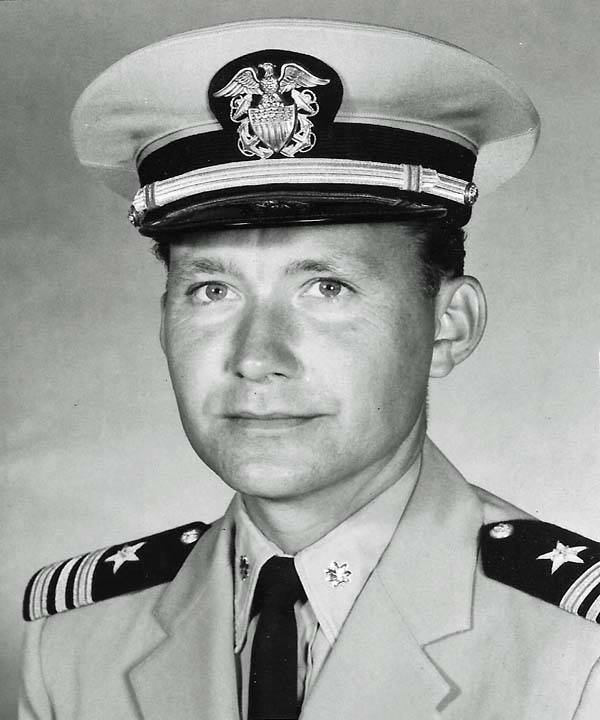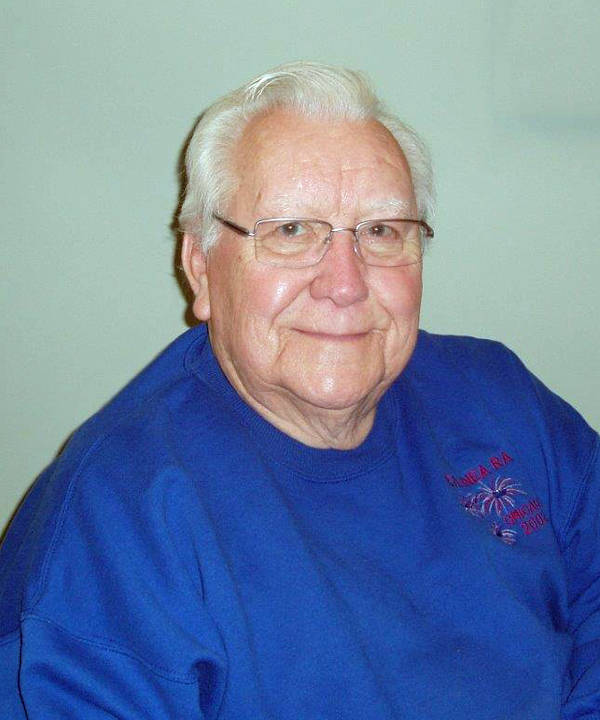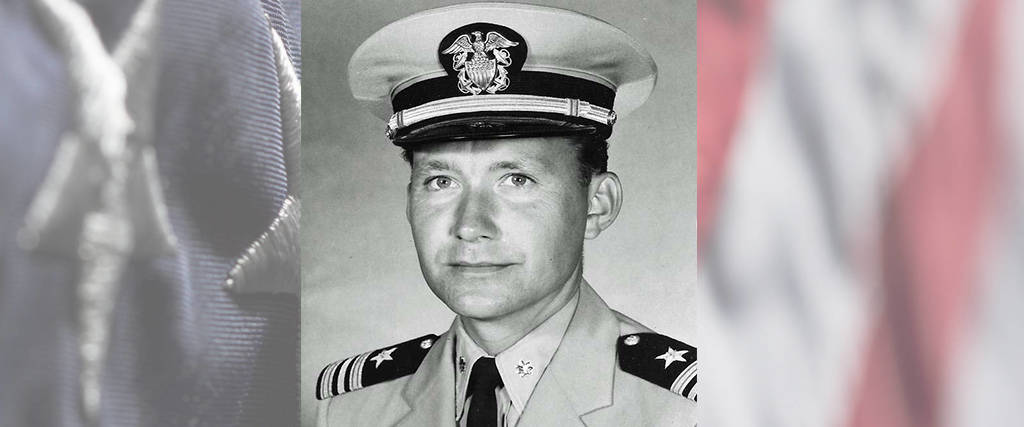U.S. Navy Korean War Libertyville, IL Flight date: September, 2019
By Wendy L. Ellis, Honor Flight Chicago Veteran Interviews Volunteer

The lines were already being drawn in Korea when Gene Craig graduated from high school in Clinton, Illinois, in 1950. For years he had listened to the war stories of his brother, a WWII Army veteran, and his brother-in-law, a Navy vet who had joined the Naval Reserve after the war.
“I greatly admired him,” says Craig, “and it sounded like it would be an adventure.” Not sure if he’d be able to go to college, he signed up for the Naval Reserve at age 17, while still in high school. When he got his diploma a year later, he not only found himself college bound, he was signed up for Reserve Officer Candidate School.
“I was sure I was going to get called up,” says Craig. “It didn’t dawn on me that I was already in this other program, so I was exempt from being called up.” By the time he finished college in 1954, the Korean War had officially ended. You might say he literally dodged a bullet.
His years at Illinois State University as an education major were highlighted by his Naval Reserve training. Two summers were spent in California at Reserve Officer Training School preparing him for his call to active duty in the U.S. Navy, upon his graduation. Gene put in to be on a destroyer because that’s where his brother-in-law had served. His second choice was a cruiser, and third a battleship. He was assigned to the USS Mississippi, a former battleship. In these last years of its service, it had been redesigned to be a gunnery experimental training ship for the new Terrier Missile, one of the Navy’s first surface-to-air missiles. Not long after arriving, he was assigned to be the educational training officer, which meant he scheduled all training missions and coordinated promotion exams for many of the 800 sailors on board. During the months he spent aboard the USS Mississippi, his duties were largely administrative.
For a short while, he served as personnel officer before becoming mess treasurer. In the Navy, officers pay for their meals. His task was to oversee the cooks, the stewards, the supplies, and the money involved with feeding the ship’s officers. “If they didn’t give me their check on time, sometimes I had to go around and get their money,” says Craig. “They rotate the treasurer. It’s not a permanent assignment. I was really relieved to get out of that because you had to make sure your books balanced and it was just different. You went from sitting at the junior officers’ table to the eating with the senior officers. I was a little intimidated. I wanted to be with my buddies.”
His final assignment aboard the Mississippi was as crypto officer, which meant decoding all encrypted messages and taking them to the officers in charge. That was his job when the old battleship was finally decommissioned in 1956, and sold for scrap. “I had to get rid of all the classified documents in the department when we decommissioned the ship. Everything was signed off, and I had receipts for anything that had been burned.” He remembers well his final walk-through of what had been the hub of the ship, the Combat Communication Center.
“When it was in operation it was very busy, lots of people talking and reporting to the officer in charge about ships in the vicinity. We were experimenting with the Terrier missiles.” But by the end, all of the equipment had been moved off the ship and most of the sailors were gone. All was silent. “ I had been in the communication center a few times but that was the eeriest thing,” says Craig, “to be in that room that was so quiet and so dark.”
The next three years of his Active Duty were spent in Naples, Italy, where he was assigned to the Commander of Naval Activities. Again, his duties were largely administrative. Because he was land-based, his new wife, Helen, was allowed to go with him. They took the opportunity to travel as much as possible, and they welcomed their first child, a son, while they were there.
In June of 1959, Craig and his small family came home to settle in Libertyville, Illinois. He and his wife both became teachers in the elementary school system. But Craig wasn’t done with the Navy. Shortly after arriving home, he again signed up for the Naval Reserve and spent the next 10 years doing what he loved, both in service and out. He rose to the rank of Captain during his Active Reserve time. In 1964, they added a daughter to their family.
His years as a teacher gave him the opportunity to go back to college for certification as an elementary school counselor, a first for Libertyville. In the late 1960’s, he set up Libertyville’s first elementary school counseling program. “We did a lot of peer relations,” says Craig. “Critical thinking, working through how to problem-solve and making a decision. What would be the consequences if you chose this? What would you do if that didn’t work?”

Gene Craig’s years of military service covered two decades by the time his years with the Naval Reserve came to an end. But many of his proudest moments come from those years, as well as the influence he had on the many young people his counseling touched. “It’s worth it if you can get one person’s life straightened out.”



